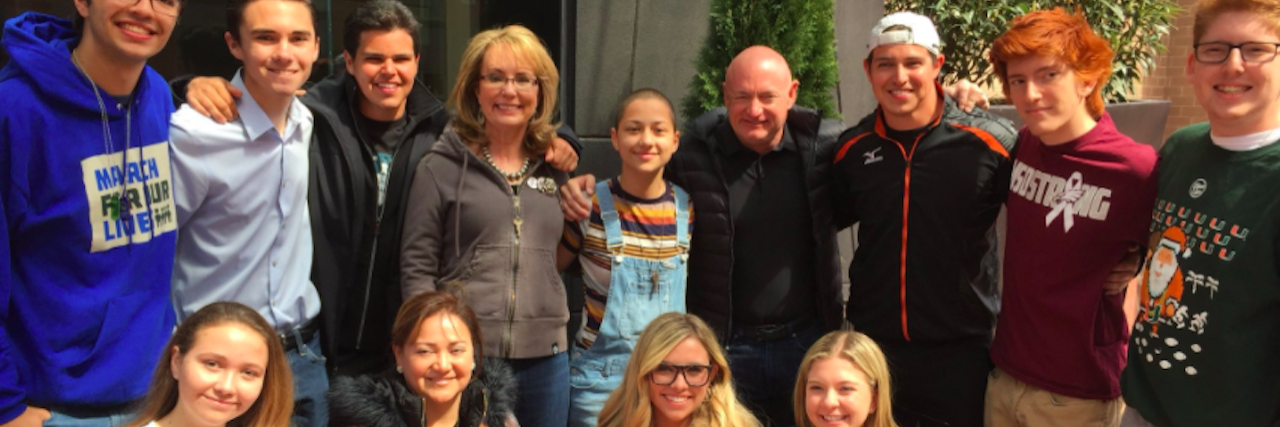As the author of a self-help book for grieving teen siblings, a former undergraduate college department chair, and clinician specializing in adolescent mental health, I’ve been saying it for years: there really is no greater force than an adolescent on a mission. In the wake of the Majory Stoneman Douglas shooting and the March for Our Lives, individuals around the world are beginning to finally see the potential represented in today’s youth: they are educated. They are woke. And they know how to use their voices for good.
While Emma Gonzalez and her peers are the most recent powerful advocates for important legislative changes, she is only the latest in the line of empowered young people to force the older generation to open their eyes. I’m reminded of Malala Yousafzai, who forged her path to resistance at age 12, blogging about living under the oppressive Taliban regime, surviving an assassination attempt and rising to become the youngest Nobel Prize laureate. One smaller, but promising example can be seen in my own legislative district, where teens Josh Portney and Katie Bishop are running the democratic campaign of candidate Daryl Boling as he challenges the incumbent Republican state rep.
So, what is it about teens that makes them so good at grabbing our attention and getting us to hear them? The answer may lie in their brains: neurobiologically, they’re going through a critical period of rapid brain development, increasing connections between cells and pruning away or reorganizing circuits for increased efficiency. Teens are more likely to be guided by intense emotions and associations with peers who are like-minded. While many studies have spoken to the increased risk-taking that occurs in adolescence, fewer have appreciated how creative, resilient and determined teenagers really are. We’re only starting to fully appreciate, through movements like March for Our Lives, how very transformative a teen on a mission can be.
It’s important to know, however, that teen brains are also highly vulnerable due to the explosion of activity occurring inside them. It’s not uncommon for teens to present to therapy for substance use problems, suicidalality, major depressive disorder, or generalized anxiety. These passionate, curious and frequently impulsive individuals still need adults to mentor and support them as they navigate an increasingly hostile and unsafe world.
So, what can we do to support the adolescents marching to ensure that school shootings are relegated to the annals of history? Aside from my suggestions here regarding how to disarm the trigger of shootings for bereaved siblings, we can take a few simple steps
1. Donate to organizations run by adolescents like March for Our Lives as a gesture of faith and support in their mission.
2. Give teens important jobs, like running a political campaign or writing for a local newspaper. Their skills and voices are valuable and refreshing, and they are the hardest of workers when they dedicate themselves to a cause they believe in.
3. Offer them safe spaces to talk about their feelings, facilitated by mental health professionals. There aren’t enough teen support groups out there, and now more than ever, groups are needed to help them cope with the many feelings that are coming up around recent school shootings. Not everybody wants to be an advocate, and some teens may even want to talk about feeling the increased burden of expectation on them now that they’re in the spotlight.
4. Don’t forget that they’re still kids, and let them be kids! Boundaries are important, and parents need to remain the building block of healthy adolescent identities. Curfews, reasonable bedtimes and avoiding too much screen and social media time remain the responsibility of mature adults with better impulse control.
Like the song goes, “I believe that children are our future.” Teens are at the forefront of social change, and as long as we grownups respect both the fragility and potential of their precious brains, they really will change the world.
Image of Parkland shooting survivors with Gabby Giffords via Twitter – Emma Gonzalez

